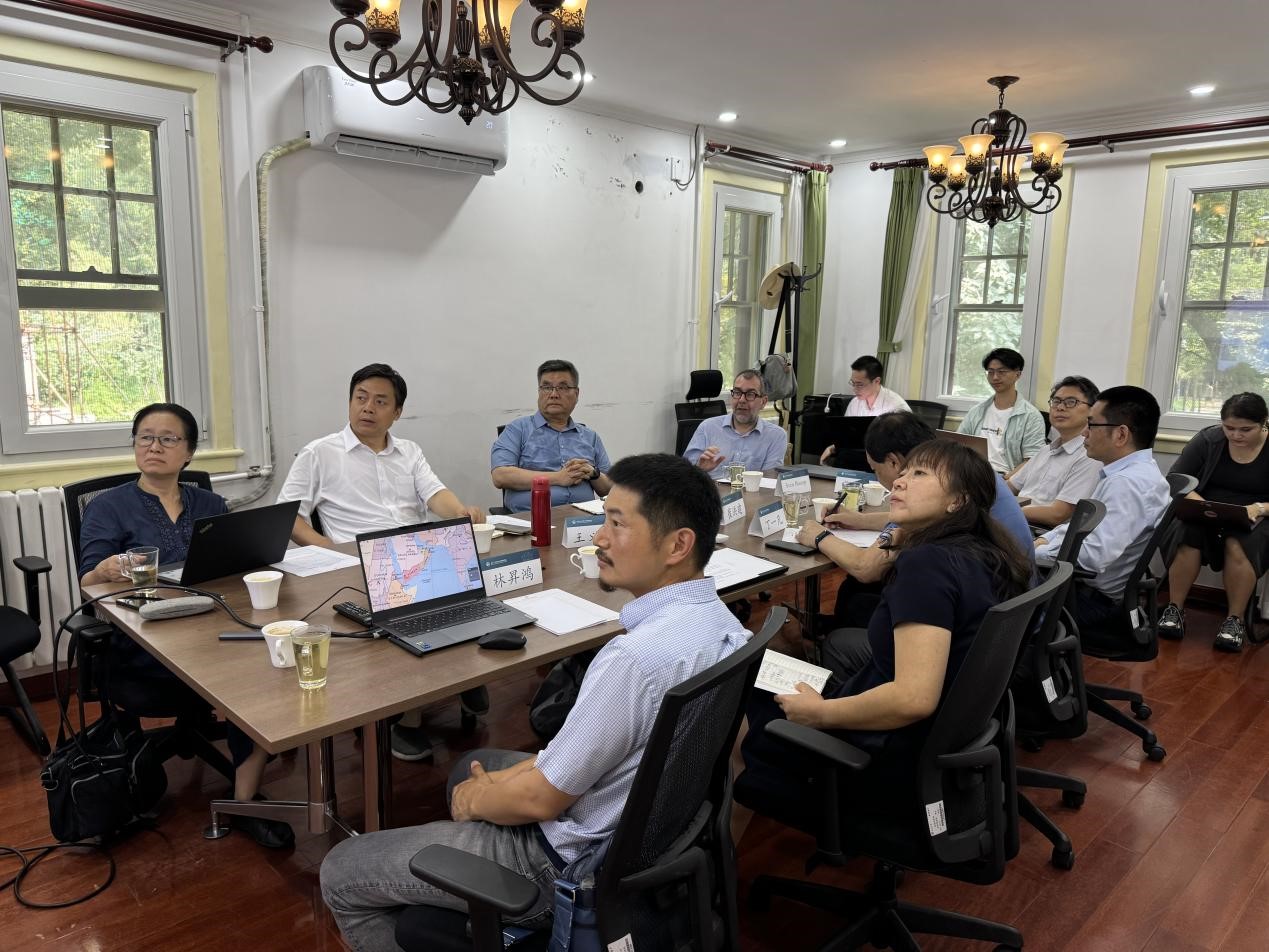
The 28th session of the "Adventus amicorum" seminar series hosted by the Institute of Area Studies Peking University (PKUIAS) took place on July 23, 2024. The seminar featured Prof. Sven Biscop from Ghent University, Belgium, as the main speaker. The event was moderated by Zhang Yongle, deputy director of PKUIAS. The discussants included Ding Yifan, senior research fellow at State Council Development Research Center’s Institute of World Development; Cui Hongjian, professor at the Academy of Regional and Global Governance at Beijing Foreign Studies University; Wang Yiwei, professor at the School of International Studies, Renmin University of China; Luo Tianhong, senior research fellow at the Institute of Area Studies, Renmin University of China; Xu Zhengyuan, associate professor at the School of International Studies, Renmin University of China; Duan Demin, associate professor at School of Governance, Peking University; and Lin Shenghong, Prof. Biscop’s research assistant.
First, Prof. Biscop explored the EU’s strategic role on the global stage, arguing that with the arrival of the new European Commission, Europe must reassess its overall strategy in order to respond effectively to contemporary geopolitical realities. Since the development of the EU’s Global Strategy, in 2016, a series of major changes have occurred in the world’s political environment, and the European leadership’s perception of its role has shifted, showing a tendency to emphasize geopolitics and downplay strategic awareness. But nowadays, the EU is abandoning its policy style of focusing on means rather than goals, using strategic awareness to manage geopolitical competition, and regaining balance and solidarity in the midst of a multipolar world.
Prof. Biscop then analyzed the EU’s strategic stance in the geopolitical conflicts in Eastern Europeand the Middle East and extended the discussion to Africa and the EU’s relationship with China in these regions. Prof. Biscop argued that the EU should adjust its strategic objectives to allow member states to decide for themselves whether to open up to China or not and create a level playing field, which is crucial for the economic interests of both Europe and China.
During the discussion session, the participating teachers and students engaged in in-depth exchanges and discussions around the content of the lectures and with the talk scholars. Ding Yifan, Cui Hongjian, Luo Tianhong, Wang Yimian, Lin Shenghong, and Xu Zhengyuan discussed the relationship between the EU and the US and NATO, the strategic layout of the EU in hotspot regions, the influencing factors in the China–EU relationship, and the degree of autonomy of the EU. Finally, Zhang Yongle summarized the seminar and expressed his future hopes for Chinese and European intellectuals to deepen academic exchange and build academic consensus.


